Devolution and decentralisation of the railways is key to what is happening in the north of England. From April 1, local authorities in the North will have much more responsibility for the service offered by franchised rail operators (Arriva for Northern and First for TransPennine Express).
SYSTRA’s Rail Franchising Director, Toby Cuthbertson, believes this is a very good thing. He is an economist, and has been working on the issues that the region will face. Responding to claims that Chancellor George Osborne’s ‘Northern Powerhouse’ concept will only benefit Manchester, he says: “Decentralisation can benefit anybody. But it’s only going to be of lasting benefit if it leads to better decisions.”
So is Transport for the North going to follow the same model as Transport for London (TfL) or ScotRail? Local government controls that, and with quite some success.
“No,” responds Cuthbertson. “It’s not quite the same model, and in any event they are not actually there yet as, of course, set-up is still under way. TfL effectively uses a concession system, rather than a franchising system. This means TfL looks after revenue, marketing and other commercial decisions, and the operators get on and run the trains and look after their costs. Scotrail does have a franchise system, so that’s a closer model, but has only one main train company to look after and also has influence over Network Rail. The North needs to cope with two core train operators and does not yet have that influence over Network Rail, though it is being discussed.
Cuthbertson believes that there will be different benefits - certainly more aspects of operating the railways will fall under their control. He says: “It should benefit them because they should be closer to their markets. They’re going to have real accountability here.
“However, we’ve got to separate devolution from investment. Although one might follow the other, I don’t think devolution automatically means you will get extra investment. Hopefully, what it means is you allocate what resources you have better, therefore you get a better environment for investment.”
But has the North not already received enough investment? There is electrification, new trains, High Speed 2, the Northern Powerhouse, Network Rail’s Northern Hub…
Cuthbertson replies: “I don’t know, is my honest answer. And under what criteria? I think the North can quite reasonably point to the fact that London’s spend per head is a lot higher, but London is utterly dependent on rail. However, growth in rail in the North is now outstripping London. Scotland gets a lot more investment. And that maybe sets a point that there should be more investment.”
So for the future of the northern railway network, should we look to the Scottish model?
“It’s horses for courses. TPE, for example, is relatively long-distance, quite a lot of discretionary travel, and has a very important commuting task. Maybe the franchising system is right for that, and maybe the concession system might be right for Northern. However, they’re both regional railways, as Northern still carries some longer distance passengers as well.”
Northern diversity
Then there are the regions within the North. All have specific demands and particular challenges, but have to work together it seems. What does Cuthbertson, in his role at SYSTRA, see as the problems?
“Going forward, as they try to establish control they’re going to be negotiating, they’ll want to change things. And they’ll be negotiating change with two owning groups who bid hard in terms of aggressive revenue lines and tight cost control. The Government has pretty good deals. And that means the two TOCs will be facing a commercial imperative to run a tight ship financially. And it’s not going to be easy to introduce change on those groups because they will be needing to look after their shareholders. This may mean change is slower and perhaps more expensive than people would like.”
The regions will need to work together, he says: “Maybe there’s a fair point to look at separation between the all-embracing Rail North and the city regions. Manchester Liverpool, Yorkshire conurbations, Newcastle and the surrounding areas… don’t forget Sunderland. They have a lot of common problems, but it’s up to them to work together.”
These regions and cities have historically been political and business rivals, for decades and even centuries. Now, seemingly, they have to work to benefit each other. How will that happen?
“That’s why I think it’s ambitious. By putting them in the same organisation, they can have those fights in the tent rather than outside. It happened in London when the Mayor of London suggested the idea of dropping a new airport on Kent. There were a few political ramifications, so I suspect that held up various metroisation projects. You’ll get that sort of thing, but it’s better to have them within an organisation rather than externally.”
Are the changes ambitious enough for what is being proposed? For Cuthbertson, it depends on what control is available.
“There are some pretty big improvements in Manchester with Victoria and the tram system. They’re looking to massively increase rail share.”
The market, certainly for Northern Rail, seems to have headed towards carrying a lot of younger passengers. That bodes well, surely?
“I think it’s taken a lot of people by surprise. There seems to have been a sea change from my generation. All I wanted to do at 17 was to get in a car and drive as far away from home as I could. Now, however, either because the driving test is harder, or because insurance costs young people so much - my son doesn’t have an interest in driving a car.”
Northern Rail Managing Director Alex Hynes puts this down to the ease of buying tickets online, availability of WiFi and the use of smartphones, to which Cuthbertson responds: “It’s interesting he should say that, and I agree with him. I would also suggest that with the range of inter-city tickets available to young and old people, the technologically savvy will be able to exploit that system as intended. You can get much better deals in real terms than you could when I was 18 or 19.”
It’s worth remembering that Northern was a franchise let in 2004 as a no-growth franchise. In terms of passenger numbers, it has grown massively.
“And people would have laughed. If you’d given them the figures ten or 12 years ago, people would have slapped their thighs in laughter. The growth has been phenomenal for both of those franchises.”
Ticket to the future
What of ticketing in the future? Should there be an Oyster for the North? Cuthbertson thinks so.
“Maybe not even Oyster, though. Isn’t that a bit old hat now? I don’t mean that nastily, that’s always going to happen with technology. It’s all going to be old hat in five years’ time. The key thing is: will it be easier for the customer?
“The answer, of course, is that while technology can be a little tricky to understand at first, experience has shown it’s a lot easier and a lot quicker. But once you’re used to it, it’s a time saver. In London, the agony of being in queue for ages for those tickets has virtually all but disappeared.”
He also agrees with the view that this is how younger passengers will buy tickets in the future.
For shorter distance trips, local control could help with ticketing. He says: “Tickets should only be complicated where complexity is necessary. I don’t have a problem with the long distance sector’s yield management approach if it fills up empty trains and gets people great value tickets. No one’s ever shouted at the airlines for complicated tickets - in fact, Ryanair gets congratulated for the cheap fares. Funnily enough, the headlines for poor old rail are the First Class return to Manchester.
“Local devolution should tell you what’s the best sort of ticket structure for this area. So it could be flat fares or zonal fares, rather than pence per mile. I think this is an area that’s devolving”. He says Rail North can help lead the way here.
However, he does worry that local authorities could have to make some tough decisions: “There aren’t unlimited funds from central government, there probably aren’t unlimited funds from themselves either. Even though you could get the allocation from what they’re given, they will want more money from rail. So where do you get that money from?
“You are more efficient and reduce costs. I don’t think people will be happy about shutting stations, which will be tremendously difficult in this country anyway.
“One of the railway’s main tasks is to carry freight around. Is it to carry it around on a busy commuter line in the morning peak? Probably not. How do you move that around?
“Actually this can be a good thing - if they can talk together they can work together. For example, for freight the key issue is not how quickly you can deliver but how reliably you can deliver. This is because there are huge costs associated with being late as it can lead to production shutdowns and so on. However, provided everybody knows the delivery will take 12 hours rather than ten hours, there should, generally, not be too much of a problem. So, if freight can be reliably routed outside peak hours and away from core passenger routes it can free up lots of passenger capacity, and that’s clearly a good thing. However, it does depend on co-operation with the freight companies and, as North London Line problems show, that is not always forthcoming - even where much power has been devolved.”
These are interesting times for the railways of the north… these are interesting times in which SYSTRA, will be playing an increasing role.
- This feature was published in RAIL 797 on March 30 2016.

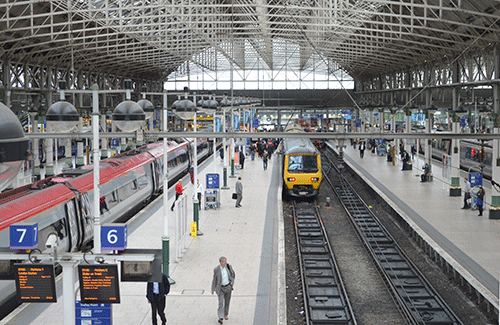

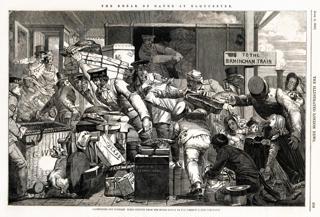
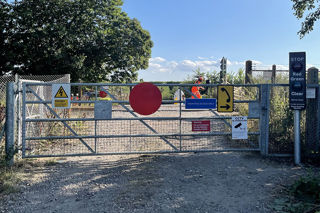
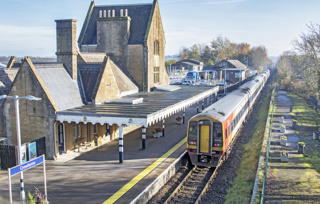
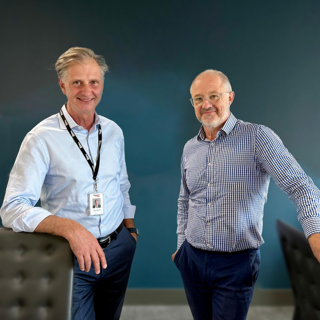











FrankH - 22/05/2016 23:10
"But has the North not already received enough investment? There is electrification, new trains, High Speed 2, the Northern Powerhouse, Network Rail’s Northern Hub…" quoted from paragraph 7. Electrification completed 35 miles if that. Then the same again Manchester - Preston. If it goes to Blackpool which it should throw another 20 miles on the total. New trains, 10 x 4 car desiros for trans pennine. HS2 is pie in the sky talk, Northern Powerhouse a load of twaddle, Network Rails northern hub, no idea what thats about. So NO the north has not recieved enough investment. I forgot about the bi mode trains ordered, 19 x 5 car units, not a lot is it, so lets not get too excited because the rest will hand me down class 319's which are of no further use elsewhere because they've got new units.